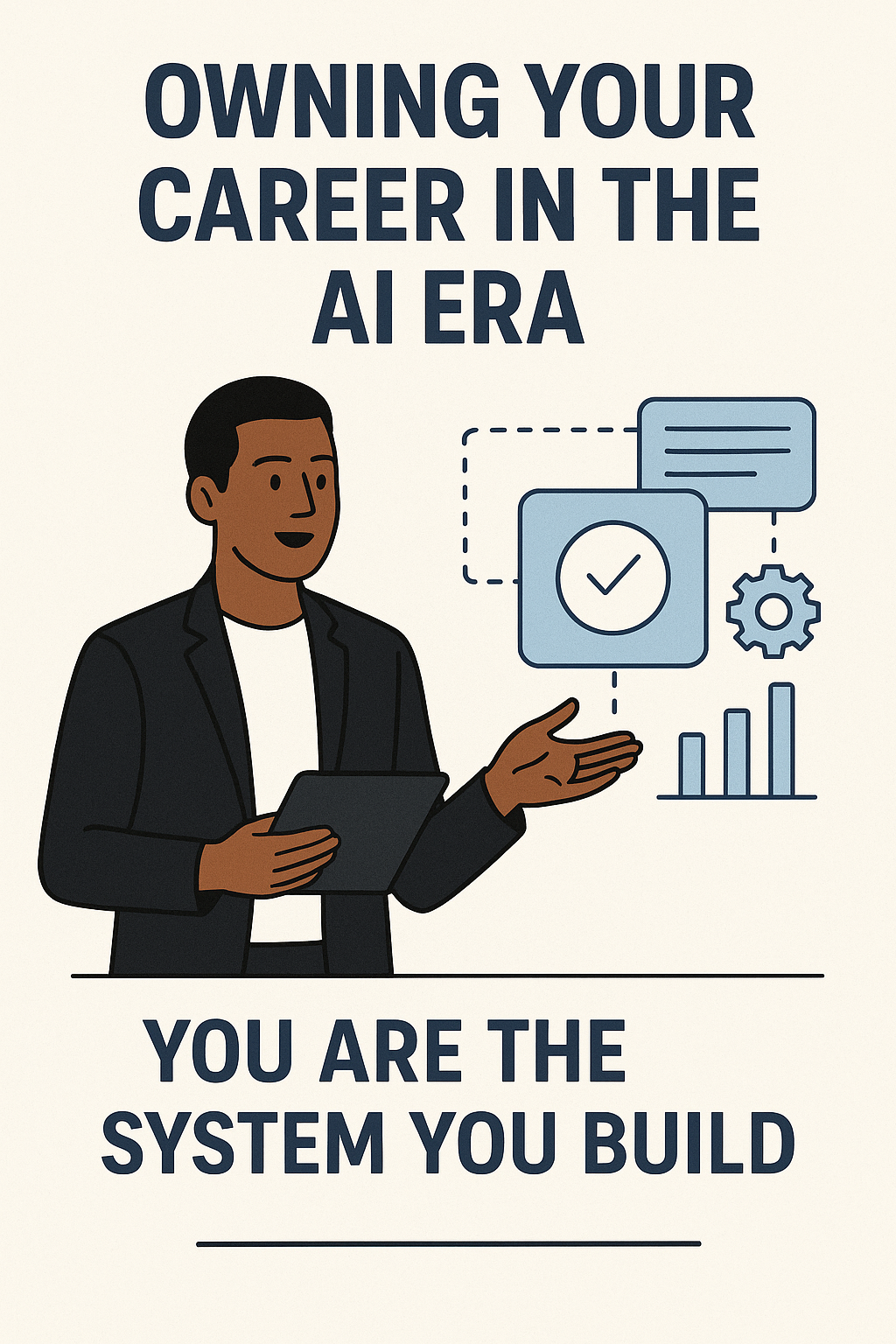
Decades ago, Intel’s Andy Grove wrote, “Nobody owes you a career. You own it as a sole proprietor.”
In today’s AI-driven world, that statement isn’t just advice — it’s reality.
Artificial intelligence has redefined how we create value, measure output, and build careers. Every professional is now a micro-enterprise, equipped with tools that amplify individual impact far beyond traditional job descriptions.
From Employees to Enterprises
AI has democratized leverage. A single person with the right tools can now match the productivity of an entire team.
But with that comes a shift in responsibility — your success depends not on your title, but on how effectively you deploy your personal AI stack.
- AI passes information; humans create value.
Machines can summarize, classify, and compute faster — but connecting data to business impact is still a human advantage. - Being “plugged in” means more than networking.
Staying connected now includes APIs, workflows, and collaboration loops — not just meetings and email threads. - Experimentation is the new learning.
Those who prototype with AI daily — automating tasks, refining prompts, building agents — will outpace those who only observe.
The Grove Equation for the AI Era
Andy Grove’s framework of adding value, staying connected, and experimenting in real time is more relevant than ever.
In the age of intelligent systems, your career is a system of its own — one you must continuously design, debug, and scale.
The new rule:
You are the system you build.
If you stop upgrading it, someone else’s system will outproduce you.
Frequently Asked Questions (FAQs)
Q1. What does “owning your career” mean in the context of AI?
Owning your career means taking full responsibility for how you integrate AI tools into your workflow to enhance your output, decision-making, and creativity. It’s about shifting from task execution to value creation — thinking like a solo enterprise rather than a cog in a system.
Q2. How has AI changed the traditional idea of career growth?
AI has made performance more outcome-based than time-based. Instead of linear promotions or years of experience, individuals can now scale impact through automation, data-driven decisions, and personalized learning. Career acceleration is now tied to your adaptability and curiosity with AI.
Q3. What skills are critical for professionals in the AI era?
- Sense-making: Turning AI outputs into strategic insight.
- Experimentation: Rapidly testing and integrating new tools into work.
- System thinking: Designing workflows that combine human and machine strengths.
- Communication: Translating complex AI insights into actionable business language.
Q4. How can professionals apply Andy Grove’s lessons today?
- Add value, not noise: Use AI to amplify your thinking, not just productivity.
- Stay plugged in: Connect across systems and people — from Slack to APIs.
- Keep experimenting: Treat every project as a live prototype for improvement.
Q5. How should organizations respond to this “micro-enterprise” mindset?
Forward-thinking companies should enable employees to customize their AI workflows, access approved tools, and measure output through impact rather than hours. Empowering individuals as system designers creates more agile, innovation-ready teams.
Spearhead Announces Strategic Partnership with NVIDIA to Accelerate Enterprise AI into Production
Designing Work for AI: Where Real Transformation Begins
AI Is No Longer Experimental. Our Thinking About It Still Is.
Subscribe to Signal
getting weekly insights


